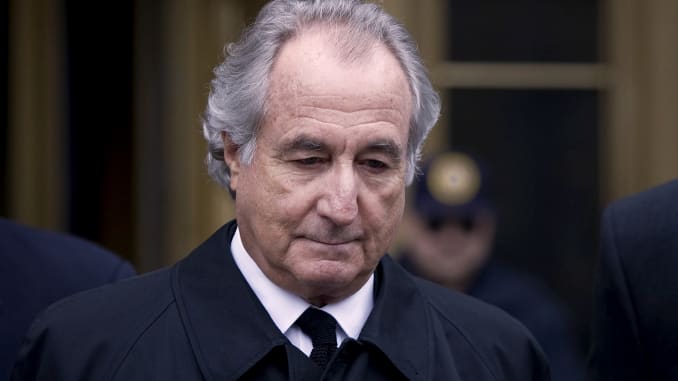On December 11, 2008, as the arrest of Benard Madoff, the former non-executive chairman of NASDAQ and chairman of Bernard L. Madoff Investment Securities LLC, many investors, big firms, banks, charities, universities and even governments were in panic, realizing that they were involved in a giant financial fraud, ‘all just one big lie’. According to an official document on March 12, 2009 from the Department of Justice of United States, Madoff pleaded guilty to eleven felony counts related to a massive Ponzi scheme and faced a statutory maximum sentence of 150 years in prison.
Actually, what Mr. Madoff did was simple; He continually paid high returns to existing clients with the funds injected by new investors without engaging in any form of legitimate investment activity and this is what people call ‘the Ponzi scheme’, named after Charles Ponzi who did such kind of financial fraud in 1920’s. However, it is easily understanding financial fraud that tricked investors billions of dollars, not just because of the golden reputation of Madoff and the greediness of investors for ‘high return’, but mainly because of the lack of regulation of the financial markets. Even Madoff said, he could have been caught in 2003, but the investigators of the Securities and Exchange Commission (SEC) overlooked the problems and missed the chance again and again. Besides, a federal prosecutor said the fraud could be dated back to at least the 1980s.
Key Stakeholders and their Involvement
When the madoff case was revealed, large numbers of stakeholders were involved and its victims are now scattered from Hollywood to Zurich to Abu Dhabi. Mr. Madoff has said, the losses of his clients might be $50 billion. Among the stakeholders, many of them are prominent and famous executives and organizations while many of them are hidden victims.
In the list of big losers, some of them are familiar organizations like Bank Santander ($3.1 billion), Bank Medici ($2.1 billion), HSBC ($1 billion) and Korea Life Insurance ($50 million) while others are not known by many people but still are quite big multinationals, for example, Tremount Group ($3.3 billion), Ascot Partners ($1.8 billion), the world’s largest sovereign wealth fund Abu Dhabi Investment Authority ($400 million) and the biggest loser in the whole case, Fairfield Greenwich Group ($7.5 billion) which worked with Madoff’s company for 20 years.
Other than firms and banks, some charities and universities were involved in the case. For instance, Elie Wiesel Foundation and Charities for Humanity ($15.2 million) has been an investor since at least 1998 and nearly all of its assets were in Madoff’s fund. Picower Foundation ($958 million), the largest foundation that has announced its closure due to Madoff’s fraud, had its founder Jeffry Picower (a noted philanthropist) found dead at the bottom of his own swimming pool in October, 2009. Universities like Yeshiva University and Tufts University lost $120 million in total.
In terms of the amount of money, the losses of many other ordinary clients seem not as much as the big stakeholders listed above but these clients and victims actually suffered severe loss. For example, a retired soldier Mr. Fox, who invested nearly $1 million in Madoff’s fund, killed himself after realizing that all his life savings were gone. Many foundations of charities closed down due to the fraud and as a result, scientific projects, healthy care campaigns supported by those charities were forced to close. For example, Innocent Project, a justice organization using advanced DNA detecting technology to help those wrongly imprisoned people, could not do more because its backer JEHT Foundation lost all of its money in Madoff’s Ponzi scheme.
Ethics and Values
While many people were still in the despair of the financial crisis, the revelation of the case of Madoff not long after the crisis, undoubtedly gave another shock to the world. Just like The Wall Street Journal (2009) said ‘Mr. Madoff’s decline and fall added to national crisis of confidence and distrust of financial system. And the human cost has also been severe, with some investors losing all their money and at least one committing suicide.’ It is obviously that a financial fraud ran by a major figure (former NASDAQ chairman) from market regulation and administration boards would yield many ethical issues/debates and distrust of the financial system.
